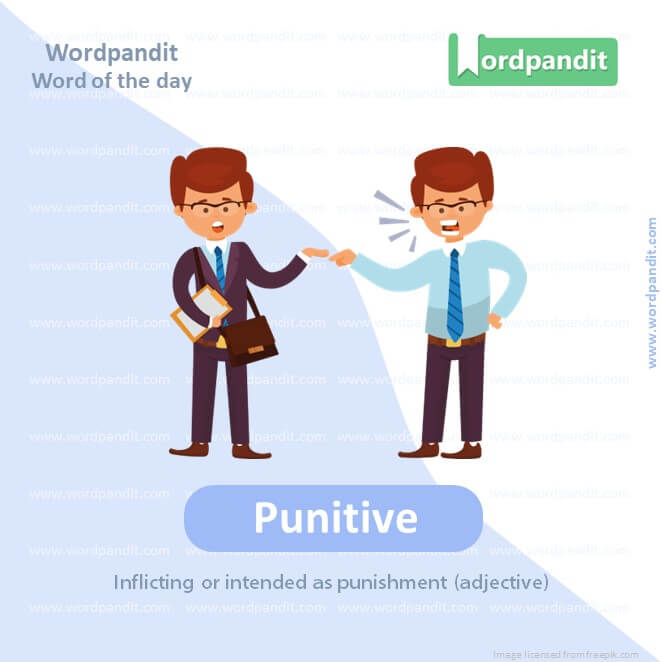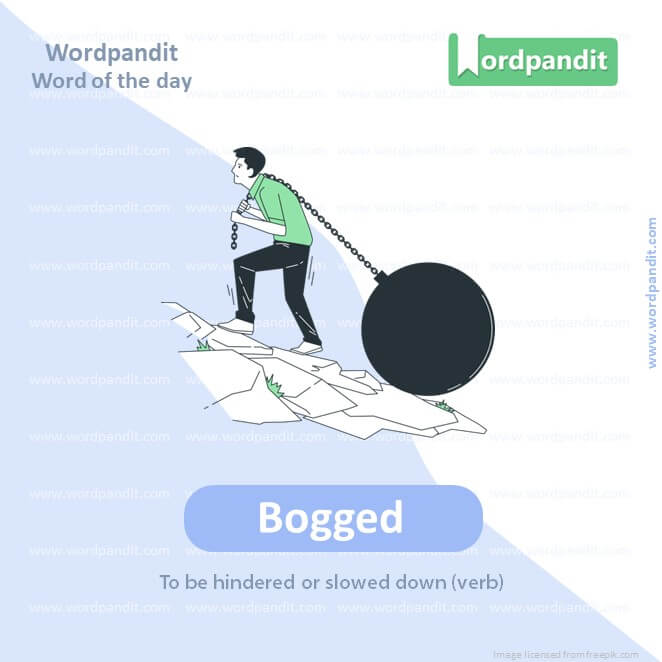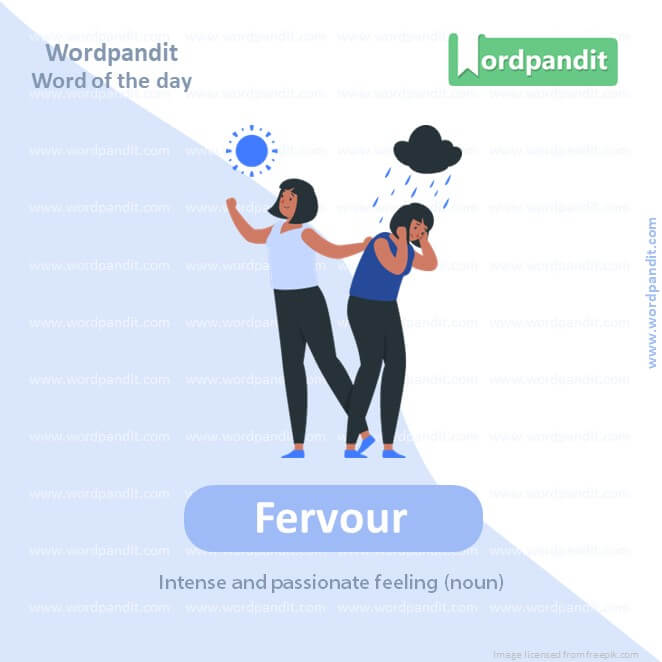Daily Vocabulary Words: List of Daily Used Words
Hi there. Welcome to this special section @ Wordpandit.
Our endeavour here is straightforward: highlighting important daily vocabulary words, you would encounter in The Hindu. This is your repository of commonly used words; essentially, we are posting a list of daily used words. Hence, this has significant practical application as it teaches you words that are commonly used in a leading publication such as The Hindu.
Visit the website daily to learn words from The Hindu.

WORD-1: Visceral
CONTEXT: the unspeakable horrors of October 7, 2023 have prompted a visceral retaliation in Gaza, that brings still-unknown risks of escalation on other fronts.
SOURCE: The Hindu
EXPLANATORY PARAGRAPH: Imagine you have a feeling in your tummy when you’re about to get a surprise gift. That feeling is deep and strong, and you don’t have to think about it; it just happens. That’s what “visceral” is like. It’s a way of feeling that comes from deep down in your body without thinking about it.
MEANING: Relating to deep inward feelings rather than to the intellect (adjective).
PRONUNCIATION: VIS-er-uhl
SYNONYMS: instinctive, gut, intuitive, involuntary, primal
USAGE EXAMPLE:
1. She had a visceral reaction to the scary movie.
2. The novel includes detailed descriptions that evoke visceral emotions.
3. His speech stirred a visceral excitement among the audience.
4. The connection between them was visceral and immediate.
WORD-2: Attrition
CONTEXT: This strategic “concept” based on periodic attrition seemed to work.
SOURCE: The Hindu
EXPLANATORY PARAGRAPH: Attrition is like when you have a big bag of candies, and every day you eat one and don’t put any back in. Slowly, there will be fewer candies left. Attrition is when things get less or smaller slowly over time, just like the candies in your bag.
MEANING: The process of reducing something’s strength or effectiveness through sustained attack or pressure (noun).
PRONUNCIATION: uh-TRI-shuhn
SYNONYMS: erosion, weakening, reduction, diminution, depletion
USAGE EXAMPLE:
1. The company experienced attrition as employees retired.
2. The army was worn down by attrition.
3. Attrition of the customer base affected the business’s profits.
4. The difficult course saw attrition as students dropped out.

WORD-3: Punitive
CONTEXT: New punitive attack options such as in Balakot, and may even be involved in the mysterious assassinations of several anti-India terrorist leaders in Pakistan.
SOURCE: The Hindu
EXPLANATORY PARAGRAPH: Punitive is when you get a time-out for not sharing your toys. It’s a way of teaching you that something you did was not okay by giving you a consequence, like when your parents tell you no TV for a day because you broke a rule.
MEANING: Inflicting or intended as punishment (adjective).
PRONUNCIATION: PYOO-ni-tiv
SYNONYMS: penal, disciplinary, corrective, retributive, punishing
USAGE EXAMPLE:
1. The judge imposed a punitive fine on the company.
2. Punitive measures were taken against the rule-breakers.
3. The law’s punitive nature discouraged bad behavior.
4. They sought punitive damages in the lawsuit.

WORD-4: Thriving
CONTEXT: India has a thriving economy, is diplomatically courted by the world, and brims with the promise of technology-fuelled dynamism.
SOURCE: The Hindu
EXPLANATORY PARAGRAPH: Thriving is like when a plant grows big and strong because it has lots of sunlight and water. When something is thriving, it means it’s doing really well and growing or becoming better.
MEANING: Prospering and progressing healthily or vigorously (adjective).
PRONUNCIATION: THRY-ving
SYNONYMS: flourishing, prospering, booming, successful, blooming
USAGE EXAMPLE:
1. The thriving business opened a second location.
2. Her garden is thriving this summer.
3. The artist’s career is thriving.
4. They are thriving in their new environment.

WORD-5: Bogged
CONTEXT: It get bogged down in a torturous process, full of spoilers, where any deal may not be enforceable.
SOURCE: The Hindu
EXPLANATORY PARAGRAPH: Think about walking in a yard after it rains, and your boots get stuck in the mud. That’s like being bogged down. It means something is stopping you from moving easily, just like the mud keeps your boots from moving.
MEANING: To be hindered or slowed down (verb).
PRONUNCIATION: BOGD
SYNONYMS: mired, stuck, hampered, impeded, obstructed
USAGE EXAMPLE:
1. We got bogged down in traffic and arrived late.
2. The project got bogged down with too many details.
3. He was bogged down by his heavy backpack.
4. The discussion got bogged down in minor issues.

WORD-6: Fervour
CONTEXT: Dialogue will not extinguish the Pakistan Army’s entrenched anti-India ideology, and even less, the fervour of its terrorist allies.
SOURCE: The Hindu
EXPLANATORY PARAGRAPH: Fervour is when you really, really like something, and you’re super excited about it! It’s like how you feel when you can’t wait to go to your friend’s birthday party because you know it’s going to be so much fun.
MEANING: Intense and passionate feeling (noun).
PRONUNCIATION: FUR-vuhr
SYNONYMS: passion, ardor, intensity, zeal, enthusiasm
USAGE EXAMPLE:
1. She spoke with fervour about her research.
2. The fans showed their fervour at the football game.
3. His fervour for the cause was contagious.
4. The revival meeting was full of religious fervour.
WORD-7: Tumult
CONTEXT: Pakistan is in the midst of seemingly endless internal tumult, and hosts a roiling soup of violent extremism.
SOURCE: The Hindu
EXPLANATORY PARAGRAPH: Tumult is like when everyone in class is talking at once, and it’s so loud and a little confusing. It’s a noisy commotion that can happen when a bunch of people or things are all moving around or making noise all at once.
MEANING: A loud, confused noise, especially one caused by a large mass of people (noun).
PRONUNCIATION: TOO-muhlt
SYNONYMS: uproar, commotion, turmoil, pandemonium, ruckus
USAGE EXAMPLE:
1. The announcement caused a tumult in the crowd.
2. The streets were filled with tumult during the celebration.
3. The tumult in the stadium continued long after the game had ended.
4. The children’s argument turned into a tumult.
WORD-8: Neutrality
CONTEXT: The principles of net neutrality are essential to foster a conducive environment for innovation, competition, and consumer welfare, especially in India.
SOURCE: The Hindu
EXPLANATORY PARAGRAPH: Neutrality is when you don’t choose a side, like when two friends are arguing, and you decide not to take either friend’s side. You stay neutral, which means you’re not picking one over the other.
MEANING: The state of not supporting or helping either side in a conflict or disagreement (noun).
PRONUNCIATION: noo-TRAL-i-tee
SYNONYMS: impartiality, nonpartisanship, objectivity, fairness, detachment
USAGE EXAMPLE:
1. Switzerland is known for its policy of neutrality.
2. The mediator maintained neutrality during the negotiations.
3. Neutrality in the dispute was difficult to achieve.
4. They claimed neutrality but favored one side.
WORD-9: Lament
CONTEXT: It is also their lament that OTT services are not subject to the same level of taxation and licensing fees, leading to an uneven playing field.
SOURCE: The Hindu
EXPLANATORY PARAGRAPH: Lament is when you feel sad about something and you show it. It’s like when your balloon flies away, and you say, “Oh no, my balloon!” because you wish you still had it.
MEANING: To express sorrow, mourning, or regret, often demonstratively (verb).
PRONUNCIATION: luh-MENT
SYNONYMS: mourn, grieve, bemoan, regret, bewail
USAGE EXAMPLE:
1. She lamented the loss of her childhood home.
2. Poets often lament the passing of time.
3. He lamented his missed opportunities.
4. The community lamented the closing of the old library.
WORD-10: Clamour
CONTEXT: The OTT consultation has renewed the clamour from the telecom companies that content providers such as Netflix, Amazon Prime, and Disney+ Hotstar be asked to share in the costs of bandwidth.
SOURCE: The Hindu
EXPLANATORY PARAGRAPH: Clamour is a loud noise that many people make all together. Imagine being in the lunchroom, and everyone is talking and laughing really loud. That’s what clamour sounds like.
MEANING: A loud and confused noise, especially that of people shouting (noun).
PRONUNCIATION: KLAM-uhr
SYNONYMS: din, racket, uproar, commotion, hullabaloo
USAGE EXAMPLE:
1. The clamour of the children in the playground could be heard from afar.
2. There was a clamour for the singer’s autograph.
3. The clamour of the city streets was overwhelming.
4. Protesters raised a clamour outside the courthouse.
vocabulary building in english
The prowess of a language learner is often evaluated by their command over vocabulary. Undeniably, vocabulary building in English is of paramount importance when it comes to mastering the language. Not only does it enrich communication skills but also boosts confidence and comprehension levels. So, how can one truly succeed in vocabulary building in English?
One of the significant aspects of vocabulary building in English is recognizing your existing lexicon’s confines. The evaluation helps set definitive goals towards the expansion of your vocabulary. Subsequently, immerse yourself in English content, be it books, news articles, podcasts or movies. This immersiveness provides exposure to new words, their usage, and context, crucial elements in vocabulary building.
Now, you have identified new words, but how do you retain them? The key is reiteration and practical application. Adopt a habit of daily revision and try using the words in your conversations or writings. Don’t fear mistakes, for they are stepping stones to the proficiency you desire in vocabulary building in English.
Next, understanding the structure of the English word, utilizing the roots, prefixes, and suffixes, can significantly elevate your vocabulary building endeavor. This strategy aids in decoding a word’s meaning and can prove instrumental in expanding your word arsenal. Remember, languages often borrow words from each other, grasping these borrowed words’ roots can substantially simplify vocabulary building in English.
Lastly, incorporating fun into learning can stimulate progress. Engage in crossword puzzles, word games, or digital apps like Duolingo or Quizlet. These platforms not only provide a fun-method to reinforce new words but also help track your progress in vocabulary building in English.
To sum up, the journey of vocabulary building in English must begin from self-evaluation, proceed with content exposure, practice, decoding, and end in a fun-oriented learning approach. The intricate layering of these methods helps you unlock the essence of this globally spoken language. Remember, the process may seem tedious initially, but with time and practiced techniques, the task of vocabulary building in English will become effortless and rewarding.









